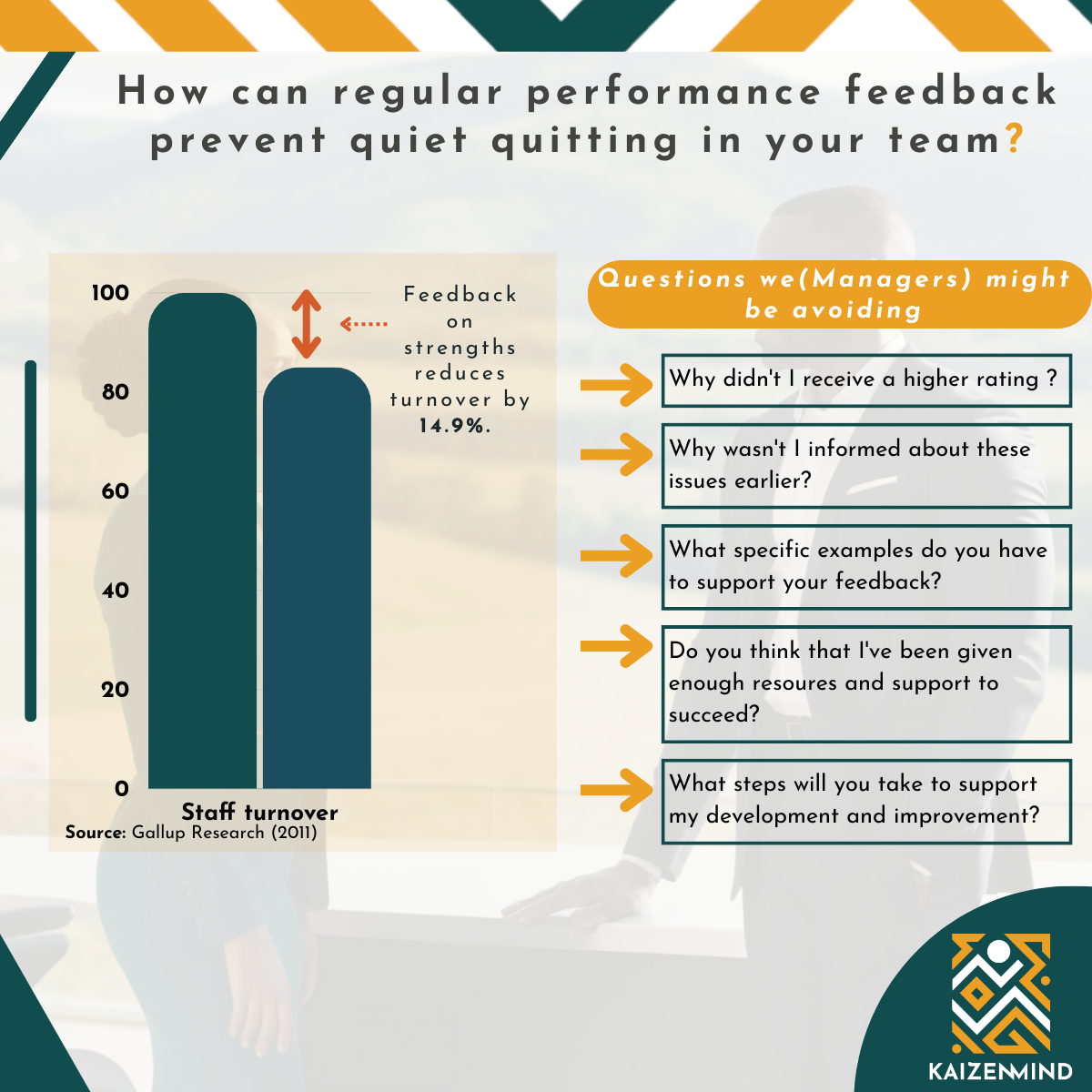Feedback is the breakfast of champions.” – Ken Blanchard
As mid-year performance reviews approach, it’s natural to feel a mix of anticipation and anxiety. These moments often prompt us to reflect on our progress and seek answers to tough questions from employee like:
• Why didn’t I receive a higher rating or score?
• Why wasn’t I informed about these issues earlier?
• What specific examples do you have to support your feedback?
• Do you feel that I’ve been given enough resources and support to succeed?
• What steps will you take to support my development and improvement?
• What feedback have you received from my colleagues about my performance?
Additionally, the discomfort we feel may come from a focus on potential challenges:
• Am I being fair and objective in my evaluation?
• How will the employee react to the feedback?
• What if she becomes defensive or emotional?
• Do I have enough evidence and examples to support my feedback?
• How will this review impact the employee’s motivation and morale?
• What if the employee’s personal issues are affecting their performance?
• What if I don’t have clear answers to the employee’s questions or concerns?
Yet, amidst these uncertainties, lies a powerful opportunity for growth and development.
#1. Shifting focus from assessment to development
Traditional performance reviews tend to emphasize past achievements and shortcomings. However, what if we approached these reviews not just as assessments, but as catalysts for personal and professional growth? Imagine if we reframed the conversation to include not only what has been achieved, but also how individuals have evolved, the skills they’ve acquired, and the challenges they’ve conquered.
When we shift from performance-oriented discussions to development-oriented dialogues, the conversation becomes more enriching. Managers can inquire about employees’ proudest achievements since the last review, how they overcame recent challenges, and what new skills they’ve acquired. These discussions not only celebrate accomplishments but also encourage self-reflection and goal-setting for the future.
#2. Coaching for growth
One of the most effective uses of a performance review is as a coaching opportunity. Rather than focusing solely on evaluation, managers can use this time to mentor and guide their team members towards greater success. Asking questions like how employees perceive their own growth and what projects excite them can reveal aspirations and ambitions that might otherwise go unnoticed.
Moreover, feedback shouldn’t be a one-way street. Managers should invite employees to share their feedback on how the organization can better support their growth and development. This reciprocal exchange fosters a culture of collaboration and trust, where both parties are invested in each other’s success.
Here are some valuable questions:
1) What are your proudest achievements since our last review?
2) How did you overcome the challenges you have faced them?
3) Can you identify areas where you believe you could improve?
4) Are there any projects or tasks you would like to take on to stretch your abilities?
5) What do you enjoy most about your job, and how can we incorporate more of that into your work?
6) Can you describe a recent success and setbacks and what you learned from it?
7) What steps have you taken to improve your performance since our last review?
8) What feedback do you have for me on how I can better support you?
9) What goals would you like to set for yourself in the coming months?
10) How do you measure your own success and progress in your role?
#3. Get and accept feedback: the manager’s role in improvement
As managers guide their team members through reviews, they must also turn the lens inward. Self-reflection is key to effective leadership.
Asking questions like “What should I start doing, stop doing, or continue doing?” enables managers to identify areas for personal improvement. This introspection not only enhances leadership skills but also sets a positive example for employees striving for continuous improvement.
The impact of timely feedback
One of the pitfalls of traditional reviews is the delay in feedback. Waiting months between reviews means missed opportunities for growth and course correction. Research shows that employees who receive regular feedback on their strengths experience 14.9% lower turnover rates than those who don’t. This statistic underscores the importance of timely, constructive feedback in fostering engagement and retention.
Creating a feedback-rich culture
To truly maximize the impact of performance reviews, organizations must cultivate a feedback-rich culture year-round. Encouraging ongoing feedback ensures that employees feel supported and valued, rather than apprehensive or uncertain during formal reviews. When feedback becomes a continuous dialogue, both managers and employees can address challenges proactively and celebrate successes collaboratively.
Conclusion
As we approach the mid-year review season, let’s embrace these moments as opportunities for growth, both individually and collectively.
By shifting our focus from assessment to development, coaching for success, and fostering a culture of continuous feedback, we empower ourselves and our teams to thrive.
Remember, feedback isn’t just a tool for correction—it’s the fuel that propels champions forward.🌟
#KaizenMind #feedback #Leadership

Leave a Reply